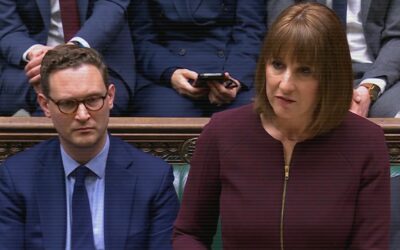On Monday 26 October our Executive Director George Turner gave evidence to the Finance Bill Sub-Committee of the House of Lords, with regards to disguised remuneration and the draft Finance Bill 2020-2021. Greg Sinfield, President of the First-tier Tribunal (Tax Chamber), and Malcolm Gammie QC, of the Institute for Fiscal Studies, also contributed evidence during this session.
Asked how easy it was to find disguised remuneration schemes, Mr Turner responded that after reading HMRC’s Spotlight which looked at tax avoidance promoters targeting NHS workers,1 he carried out a “secret shopper” exercise, and that a simple Google search revealed links to professional companies trading in these schemes. Mr Turner said it was “a myth” that there were just a few obscure or black market operators of such schemes left, “acting from above a chip shop or something”. “The reality is that these are very highly professional organisations. I was looking for mass-marketed tax avoidance schemes. They need to contact consumers and drum up business somehow, so it was depressingly easy to find these companies.”
After giving his details and posing as a high paid employee, he was given a callback within an hour from one company and was advised he could keep 83% of his earnings tax-free if he signed up to their scheme. The scheme was described as a “split payment”. “Basically, your employer would contract with the agency or whichever provider it recommended. You would be paid minimum wage or thereabouts, which would attract no income tax charge or a very, very small one. Then the balance of your payment would be given as an employee advance, as they called it in this case, based on future profits. It was said to me that this was exactly how John Lewis employees were paid, which was a clear and transparent lie.”
Mr Turner told the sub-committee that he received marketing material, which he has handed over to HMRC, that stated that the schemes were in line with the latest HMRC rules. This was was “categorically not true”.
He has since been subject to targeted advertising promoting tax avoidance schemes.
Mr Turner said that these schemes are fraudulent in that there is “fraud against the user who is provided with all sorts of fake assurances” and that there’s a further fraud “against the revenue in the way that these schemes are constructed”.
When asked is it possible for an individual to sign up without knowing its fraud, Mr Turner said that it is understandable that some users might sign up to a scheme if they are provided reassurance by their employer and the scheme seller. In one instance, an individual reached out to TaxWatch saying that they had signed up with a company which told its clients that it was paying taxes on their behalf, but actually, the provider was keeping the supposed tax bill for itself.
Mr Turner continued, telling the committee that “there is zero possibility that HMRC don’t know who these people are and what they are doing”, before going on to suggest that the sellers of these schemes should be prosecuted for fraud. “Research done by Kantar earlier this year on behalf of HMRC found that the 20 so-called hardcore promoters had been engaged in this practice for many years and were all well known to HMRC. It is frankly an absolute scandal and an indictment of the performance of HMRC that these things have not been shut down.”
Questioned by Baroness Bowles as to what HMRC had done after TaxWatch had reported these schemes, Mr Turner said that following submitting evidence he had heard nothing back. Mr Turner went on to say that while HMRC has done a lot of work on disguised remuneration schemes, what they haven’t done is “the one thing that would be truly effective, which is simply to apply the criminal law”, and that “if HMRC were to bring successful prosecutions for fraud, it would be able to pursue these people under proceeds of crime legislation and recoup substantial amounts of money for the Exchequer.”
Mr Turner highlighted that there is often a perception in the UK that tax avoidance is lawful, with promoters playing on that misunderstanding, and that influential members of the law profession have been involved in disguised remuneration schemes. He went on to highlight to the sub-committee that “there are senior barristers who advise on these schemes and they need to be held to account as well”, and that “just because someone wears a wig, it doesn’t make them any different from someone who wears a balaclava.”
At TaxWatch we have previously submitted evidence to HMRC calling for those who sell disguised remuneration tax avoidance schemes to be investigated for tax fraud, and written to the Economic Crime Unit of the City of London Police, calling on the department to open an investigation into sellers of these schemes for defrauding their clients.
The debate is available on Parliament Live here.
Photo by Recal Media from Pexels
1 Tax avoidance promoters targeting returning NHS workers (Spotlight 54), HMRC, 30 March 2019, https://www.gov.uk/guidance/tax-avoidance-promoters-targeting-returning-nhs-workers-spotlight-54



